Search This Blog
Saturday, May 31, 2014
Viskningar Och Rop (aka Cries And Whispers) (1972)
Friday, May 30, 2014
Jewel Of The Nile (1985)
Miss Sadie Thompson (1953)
Maleficent (2014)
Thursday, May 29, 2014
The Hawaiians (1970)
I Walked With A Zombie (1943)
A nurse (Frances Dee) is hired to take care of the wife (Christine Gordon) of a sugar plantation owner (Tom Conway) in the West Indies. Once there, she finds the relationship between the husband and his brother (James Ellison) strained. It seems there's more behind the wife's illness than just mental inertia. Using Charlotte Bronte's JANE EYRE as a template, producer Val Lewton and director Jacques Tourneur have created an idyllic and lyrical horror film. Romantic horror films are very rare. Some of the film versions of DRACULA, like Werner Herzog's and Francis Ford Coppola's, would count I suppose but I WALKED WITH A ZOMBIE with its lush but supernatural Caribbean atmosphere as the background heightens the love story. Everything is just right here, it's about as flawless a piece of dream horror as has ever been made. The film is smart enough to not to give a definitive explanation of the circumstances that drive the narrative forward. Natural explanation or voodoo? You decide! With Theresa Harris, Edith Barrett, James Bell, Jeni Le Gon and Sir Lancelot.
Wednesday, May 28, 2014
Funeral In Berlin (1966)
Our Daily Bread (1934)
During the great depression, a young married couple (Karen Morley, Tom Keene) move from the city to a farm where they hope to make a go of it. Unable to make a success of it on their own, he recruits other victims of the depression and utilizes their trades and they form a coalition. A community collective where everyone works and shares in the bounty. Though independent cinema is the norm now, it's not new. The director King Vidor was unable to interest any of the studios in this low budget project, so he funded it himself and was able to make it without studio interference. The film's premise is a Utopian fantasy, of course, the kind of idealistic philosophy that is destined to fail given mankind's penchant for upward mobility. Most of the film is devoted to the ragtag collection of depression victims struggling to make their dream come true and it's more than a little simplistic. But near the end, there's a spectacular piece of cinema. The entire irrigation sequence is a thrilling example of montage, unlike the rest of the film it has a rhythm of its own and the editing is as precise as a choreographed production number. Vidor has some help from Joseph L. Mankiewicz (dialog), Alfred Newman (score) and Robert Planck (cinematography). With Barbara Pepper as the serpent in Eden, Addison Richards and John Qualen.
Tuesday, May 27, 2014
The Horse Soldiers (1959)
A Colonel (John Wayne) in the Union cavalry leads a brigade behind enemy lines. His mission is to destroy a Confederate supply station and railroad line. While not one of director John Ford's greatest films, this one is still pretty solid. Based on an actual incident in the Civil War, the film does a good job of showing both the ugliness of war as well as its heroism without tipping the balance in either direction. There are a few miscalculations along the way, Ford uses the sequence of children as soldiers for humor rather than the insidious practice it is/was. Fortunately, for the most part, he's restrained himself from his usual misguided attempts at humor. As the conflicted Colonel, Wayne gives one of his best (if unsung) performances. This is a man who's doing his duty even if he dislikes what he must do. Holden's role as a cavalry doctor is rather colorless, more a foil to Wayne than anything else and Constance Towers as a treacherous Southern belle gets to do more than just being "the girl". Though there are battle scenes, the film comes across as more of what the effect the war has on its characters rather than an action movie. With Strother Martin, Anna Lee, Denver Pyle, Hank Worden, William Leslie and the tennis champion, Althea Gibson.
The War Between Men And Women (1972)
Monday, May 26, 2014
Deep In My Heart (1954)
The composer Sigmund Romberg (Jose Ferrer) rises from playing piano in a small cafe to the toast of Broadway! Yet another tiresome movie biography about a composer's dull life dressed up a bit with faux dramatic moments to kill time between the all star musical numbers. MGM had been down this route before with movie bios on Jerome Kern and Rodgers & Hart. I'm not a fan of Romberg's operetta style tunes but if you are, you might make it through this without wanting to do a Van Gogh on your ears. Romberg had an uneventful life so there are lots of musical numbers in an attempt to keep you interested. Only two stood out for me: Ann Miller's snappy toe tapping It and a rather erotic dance to One Alone danced by Cyd Charisse and James Mitchell. Other than that, we have Jane Powell trilling and Tony Martin bellowing. Still, they're both preferable to a hideous scene where Jose Ferrer acts out the plot of one of his shows playing all the characters! On the technical side, the Eastman color is vivid and the sets and costumes are impressive. Directed by Stanley Donen without the panache he invested in his other 1954 musical, SEVEN BRIDES FOR SEVEN BROTHERS. The huge cast includes Merle Oberon, Gene Kelly, Walter Pidgeon, Rosemary Clooney, Helen Traubel, Howard Keel, Vic Damone, Tamara Toumanova, Joan Weldon, Russ Tamblyn, Jim Backus, Paul Stewart, Isobel Elsom, Susan Luckey and Doe Avedon (THE HIGH AND THE MIGHTY) as Mrs. Romberg.
Sunday, May 25, 2014
Shi (aka Poetry) (2010)
A grandmother (Jeong Hie Yun) living on government subsistence is raising her slacker grandson (Da Wit Lee) while holding on to a part time job taking care of an elderly man suffering from a stroke. When she is diagnosed with the early stages of Alzheimer's, she takes a poetry class which requires she complete a poem at the end of the class. She must also deal with the moral dilemma of a horrible act committed by her grandson and his friends. It's most difficult to describe what makes POETRY such an exquisite film. On one level, everything about it is incredibly simple. Yet there are undercurrents of something deeper and more profound lurking beneath its tranquil surface. Yes, the protagonist is dealing with the onset of Alzheimer's but this is no tearjerker. It's a precise and tight (despite its over two hour running time) and yes, at times poetic contemplative glimpse into the world of an ordinary person who must do something extraordinary. Yun's performance is extraordinary, the kind of subtle and discreet acting that too often gets pushed aside in favor of flashier acting pyrotechnics. A beautiful film.
The Immigrant (2014)
In 1921 New York, a Polish immigrant (Marion Cotillard) and her sister (Angela Sarafyan) arrive on Ellis Island. When the sister is quarantined because of tuberculosis, the young woman is taken under the wing of a procurer (Joaquin Phoenix) and coerced into prostitution. Determined to survive and get her sister out of Ellis Island, she submits to the degradation waiting for the day she will be reunited with her sister. It's taken awhile for THE IMMIGRANT to open in the U.S. It screened at last year's (2013) Cannes film festival and the Weinsteins planned a late 2013 U.S. opening during the awards season when they abruptly pulled it from their schedule. Apparently they've lost interest in the film because it's quietly opened without the usual Weinstein hoopla. It's a pity because this is a very good film. Just on a technical level, the cinematography by Darius Khondji (MIDNIGHT IN PARIS) and art direction evoke a rich and palpable atmosphere of New York in the early 1920s. Cotillard gives a heartbreaking performance and is matched every bit of the way by Phoenix who lets us see the human under the beast. Normally, if someone told me a film is about forgiveness, I'd run in the other direction. In this case, it's a beautiful darkly romantic (and I mean dark) piece of work, easily James Gray's best film to date. With Jeremy Renner.
Saturday, May 24, 2014
A Chorus Line (1985)
Design For Living (1933)
Friday, May 23, 2014
Giant (1956)
A wealthy Texas rancher (Rock Hudson) makes a trip to Maryland to buy a stallion. He also happens to get the strong willed daughter (Elizabeth Taylor) of the horse's owner (Paul Fix). When he brings her to Texas, it's just the beginning of a sprawling family saga that will span almost three decades and three generations ..... and it feels like three decades just watching it. Lord have mercy! What a thudding bore! Dragging on for almost three and a half hours, the George Stevens' epic yarn based on the Edna Ferber bestseller is in serious need of a good editor. Stevens elongates every scene way beyond necessity as if he intends us to savor every snail paced moment as if he was giving us something profound. I'm convinced if the pace was picked up and a good half hour eliminated, I'd find the film much more agreeable. This was James Dean's last film and for the film's first two thirds, he's the best thing about the film. In the last third however, he's simply awful (though some of this might be due to some obvious post dubbing by another actor). While Taylor and Hudson (who got his sole Oscar nomination for his work here) manage to convey aging in the last third, Dean can't. The loud obtrusive score is by Dimitri Tiomkin. With Carroll Baker, Sal Mineo, Dennis Hopper, Mercedes McCambridge (Oscar nominated), Rod Taylor, Chill Wills, Jane Withers, Earl Holliman, Judith Evelyn, Alexander Scourby and Carolyn Craig.
Thursday, May 22, 2014
The Big Easy (1987)
Casa D'Appuntamento (aka The French Sex Murders) (1972)
Wednesday, May 21, 2014
The Key (1958)
Tuesday, May 20, 2014
Sundown (1941)
As the war begins in Europe, a small outpost in Kenya under the command of a sparse group of British military attempts to find out how guns are being smuggled to the natives in the hopes they'll drive the British out. When a beautiful half caste (Gene Tierney) arrives at the outpost, things begin to heat up. For the most part, this minor war action film avoids the propaganda aspects of many films of its era. At least until the very end when it's laid on thickly with a trowel. It's the kind of forgettable programmer where about halfway through the movie you suddenly realize you've seen it before! As the Arab maiden, Tierney was in exotic mode during this phase of her career. She would follow this with another half caste (SHANGHAI GESTURE), Polynesian (SON OF FURY) and Eurasian (CHINA GIRL) before LAURA rescued her. Directed by Henry Hathaway (TRUE GRIT), the film garnered three Oscar nominations including one for Miklos Rozsa's score. With George Sanders, Bruce Cabot, Reginald Gardiner, Joseph Calleia, Harry Carey, Marc Lawrence and Dorothy Dandridge.
Monday, May 19, 2014
Flight From Ashiya (1964)
Set in Japan, as the U.S. Air Force Rescue Service flies through a storm to help rescue the survivors of a shipwreck, three of its crew reflect on pivotal moments in their past via flashback. A paramedic (Yul Brynner) recalls his ill fated love affair with an Arab girl (Daniele Gaubert) in Tunisia, a pilot (Richard Widmark) recalls the death of his wife (Shirley Knight) in a Japanese POW camp and the co-pilot (George Chakiris) remembers an accident that caused the death of the very people he was trying to rescue. For a potboiler that promises a generous dose of action, this is one tedious film. Based on a novel by Elliott Arnold (who co-wrote the screenplay), the film appears to have been more ambitious than what we're given. Several of the characters would appear to be underdeveloped but I suspect their story lines were victims of the editing shears. Suzy Parker, for example, has a relationship with Brynner that's only hinted at and the actress isn't given much to do other than waiting around. The actual rescue sequences are well done but the bulk of the film is devoted to the dreary backstories. There's a strong score by Frank Cordell (KHARTOUM). Directed by Michael Anderson (LOGAN'S RUN). With Eiko Taki as Chakiris' love interest, who also seems a victim of the cutting room.
Invasion Of The Body Snatchers (1978)
Sunday, May 18, 2014
Chef (2014)
A chef (Jon Favreau, who also directed and wrote the script) at a popular upscale restaurant is blindsided by a disastrous review by a food blogger (Oliver Platt). After the restaurant's owner (Dustin Hoffman) insists he stick to the tried and true menu rather than exercise some creativity in the kitchen, he quits. After huge blockbuster movies like the IRON MAN franchise and COWBOYS AND ALIENS, director Favreau goes the small indie and film festival route with this charming piffle of a film. If you're a film fan and a foodie, this movie is for you. I'm quite partial to "foodie" movies myself (think BIG NIGHT or BABETTE'S FEAST) and with culinary master Roy Choi as technical adviser, the film has the ring of authenticity. It balances its food porn aspects with the father/son bonding (an expert performance by 10 year old Emjay Anthony as the kid) narrative laced with some romcom vibes (Sofia Vergara, Scarlett Johansson). Don't go to it on an empty stomach! With Robert Downey Jr., John Leguizamo, Bobby Cannavale and Amy Sedaris.
Saturday, May 17, 2014
Francis Joins The WACS (1954)
A bank teller (Donald O'Connor) is called back into active duty with the Army. However, a computer error has him assigned to the Women's Army Corps. As coincidence would have it, he finds an old friend there. A talking mule called Francis (voiced by Chill Wills). This fifth installment in the Francis The Talking Mule franchise is showing signs of exhaustion. It's a essentially a one joke concept that's been milked dry and probably should have wrapped it up with this entry. There would be two more (with Mickey Rooney replacing O'Connor in the last one) and heaven knows where else the franchise would have gone ... FRANCIS GOES TO MARS? FRANCIS MEETS TARZAN? O'Connor, who had been in every Francis movie since the first one in 1950, dutifully goes through his paces while a bevy of Universal contract lovelies don WAC uniforms. This being 1950s Hollywood, every WAC is a babe! The film sends out mixed signals about women in the military. Parts of the film are extremely condescending toward the female soldiers yet they ultimately triumph over their male counterparts. Directed by Arthur Lubin. Among the WACS: Julie Adams, Mamie Van Doren, Lynn Bari, Allison Hayes, Mara Corday, Joan Shawlee with Robert Bray and Zasu Pitts.
Playing By Heart (1998)
Friday, May 16, 2014
Les Biches (1968)
A wealthy and fashionable woman (Stephane Audran), who at first appears to be a predatory lesbian, picks up a young street artist (Jacqueline Sassard, ACCIDENT) and whisks her off to St. Tropez. But once there, the young girl shows interest in a handsome architect (Jean Louis Trintignant), who later seduces the older woman. As they say, three's a crowd! The director Claude Chabrol has a talent for relaxed titillation and corruption among the upper class bourgeoisie and he exploits it to the fullest in LES BICHES. Though it touches on the same exchange of personalities that were explored in more detail in Bergman's PERSONA and Altman's THREE WOMEN, I don't think that's the focus of Chabrol's interest. He seems more interested in the languid atmosphere of St. Tropez in the winter and the stylish but vacuous inhabitants who populate the austere landscape, who seem to have nothing better to do but feed off each other. Whatever Chabrol's motives, it's an elegant and compelling watch. With Henri Attal and Dominique Zardi.
Thursday, May 15, 2014
Eyes In The Night (1942)
When an old friend (Ann Harding) asks for his help in dealing with a fortune hunter (John Emery) who's romancing her stepdaughter (Donna Reed), a blind detective (Edward Arnold), aided by his clever seeing eye dog Friday, soon finds himself immersed in both murder and Nazi agents. Based on THE ODOR OF VIOLETS by Baynard Kendrick, this "B" detective programmer is an early effort by Fred Zinnemann (HIGH NOON) after relocating to Hollywood from Germany in the late 1930s. The film was popular enough to spawn a sequel three years later, again with Arnold as the blind detective, but a franchise never happened. It's really an undistinguished routine murder mystery, we know very early on who the killer(s) is and most of the film is a waiting game until the police get there in time. I suppose if you have a penchant for 40s murder mysteries you might find some appeal in all this but for the rest of us, it's rather dull. The film could have used some wit. With Barry Nelson, Stephen McNally, Reginald Denny, Mantan Moreland, Katherine Emery, Allen Jenkins and Rosemary DeCamp.
Steel Magnolias (2012)
On her daughter's wedding day, a mother (Queen Latifah) expresses concern over her daughter's (Condola Rashad) health. She's a type 1 diabetic and is determined to have a baby even though her doctors have advised her against it. But with the support and love of their woman friends, they will see it through together. This remake with an all black cast is based more on the 1989 film than the original Robert Harling play. Even then, there are some obvious changes from the 1989 film. So how does it measure up? Well, the source material is a perfectly crafted tearjerker with lots of bite and humor so on that level, it's almost impossible to go wrong if it's done halfway decent. Alas, with two exceptions, the actresses just aren't up to the material. It's almost as if they deliberately went out of their way to avoid any comparison with the 1989 film. They say the lines but something's missing. Queen Latifah is adequate as the mother but it's not until the film goes past the halfway mark that she brings her full force to the part. On the other hand, Alfre Woodard as the perennially grouchy Ouiser gets it right from the start. Directed by Kenny Leon. With Phylicia Rashad, Jill Scott and Adepero Oduye.
Dead End (1937)
Wednesday, May 14, 2014
The Landlord (1970)
A young white man (Beau Bridges), who comes from a conservative but wealthy family, buys an apartment house in a downtrodden black neighborhood with the intention of evicting the tenants and gentrifying the apartment. What happens, however, is an eye opening learning experience. THE LANDLORD is a film that could only have come out of the 1970s. It's an uneven comedy (with some dramatic elements) so perhaps it shouldn't surprise us that the film is filled with stereotypes, both black and white. The rich whites are unapologetic racists and the blacks are funky and fun. But it was one of the first mainstream films that dealt with black rage and black pride. One can look past its often glib execution and savor its arrows when it hits its targets. Three performances stand out. Louis Gossett Jr., the great Diana Sands (who's amazing) and Lee Grant (in an Oscar nominated role) who manages to rescue her caricature and turn it into a personal acting triumph. Directed by Hal Ashby (his first film as a director) from Kristin Hunter's novel. Also in the cast: Pearl Bailey, Susan Anspach, Robert Klein, Trish Van Devere, Walter Brooke, Mel Stewart and Marki Bey.
Tuesday, May 13, 2014
The Comedians (1967)
Monday, May 12, 2014
Black Bart (1948)
A respectable cattle rancher (Dan Duryea) near Sacramento in California has another identity, that of the notorious masked bandit Black Bart whose reputation was made by robbing Wells Fargo stagecoaches. He becomes infatuated with the famous Spanish dancer Lola Montez (Yvonne De Carlo) but so has his former partner (Jeffrey Lynn, LETTER TO THREE WIVES). There was a real Black Bart, of course, but this film is highly romanticized and fictionalized. The real Black Bart was married and there was no evidence he ever met Lola Montez, much less fell in love with her and Black Bart's fate in this version never really happened. That aside, this is actually a pleasant little western, beautifully shot in three strip Technicolor by Irving Glassberg (TARNISHED ANGELS). The romantic triangle makes a pleasant diversion from the standard outlaw activity and De Carlo, who has two dance numbers, was made for Technicolor. Despite the downbeat ending, the film has a sense of humor and the last shot is bound to make you chuckle. Directed by George Sherman. With Frank Lovejoy, John McIntire, Percy Kilbride and Ray Teal.
The Conqueror (1956)
The leader (John Wayne) of the Mongols kidnaps a Tartar woman (Susan Hayward) on her way to be married and takes her as his own despite her protestations. This precipitates a war between various tribes. THE CONQUEROR has the unenviable reputation of being one of the worst films of all time. Principally due to the insane casting of Wayne as Genghis Khan and redheaded Hayward as his Tartar woman. But take away the miscasting and how bad is it? In truth, it's no worse than those Tony Curtis/Piper Laurie exotic sword and sandal programmers Universal was churning out in the 1950s, it's just not as fun. In fact, for a supposed piece of kitsch, it's remarkable how dull it is. If the film had been cast more appropriately, say, Anthony Quinn and Gina Lollobrigida, it still wouldn't be any better. The dialogue has to be heard to be believed ("I feel this Tartar woman is for me and my blood says take her") but other than a bump and grind sword dance by Hayward, there's not much to grin about. On the plus side, handsome CinemaScope cinematography that utilizes the Utah desert landscapes to advantage and a full bodied Victor Young score. Produced by Howard Hughes and directed by actor Dick Powell. With Agnes Moorehead, Pedro Armendariz, Lee Van Cleef, Thomas Gomez, John Hoyt, Ted De Corsia and William Conrad.
Saturday, May 10, 2014
The Bostonians (1984)
Operation Amsterdam (1959)
The Cheat (1931)
Set in the country club set of Long Island, the upper class wife (Tallulah Bankhead) of a young stockbroker (Harvey Stephens) lives beyond her means. Not just clothes but gambling debts. When she embezzles $10,000 from the charity of which she is the treasurer, she turns to a sinister adventurer (Irving Pichel, who would later turn to directing movies like DESTINATION MOON) to loan her the money to replace the theft. However, what he wants in return isn't to be paid back but to possess her. A remake of the 1915 Cecil B. DeMille silent, this is a vehicle to showcase the talents of Bankhead, a popular stage actress whose film career never caught fire. But it wasn't until the 1940s when she had vehicles that showcased her properly (LIFEBOAT, A ROYAL SCANDAL). She's good but the low-minded material which was probably shocking in 1915 seems just coarse and obvious in 1931. Fortunately, at one hour and seven minutes, the film is economical in its storytelling and doesn't waste our time. Directed by the stage director George Abbott (THE PAJAMA GAME).
Friday, May 9, 2014
Neighbors (2014)
Thursday, May 8, 2014
Arthur (1981)
A wealthy spoiled alcoholic (Dudley Moore), who's never grown up, is looked after by his valet (John Gielgud in an Oscar winning performance). He's pressured into an arranged marriage with the daughter (Jill Eikenberry) of his father's (Thomas Barbour) business associate (Stephen Elliott). But when he meets a shoplifting waitress (Liza Minnelli), it's love at first sight. While alcoholism in the movies is usually treated with somberness in movies like THE LOST WEEKEND and LEAVING LAS VEGAS, director-writer Steve Gordon's (whose only directorial effort this is, he died a year after this film) manages a balancing act of milking laughs yet still showing us the sadness underneath Moore's drunken veneer. While some drunks get mean when they drink, Moore's Arthur is happy and fun and it's contagious. At the film's opening, when the drunk Moore picks up a hardened street hooker (Anne De Salvo), we see her melt under his genuine kind nature. It's that sweetness that draws us to him rather than being repulsed by his alcoholism. Gielgud channels Clifton Webb superbly, tossing off barbed quips (he tells Minnelli, "One usually has to go to a bowling alley to meet a woman of your quality") while letting us see his concern and affection for the child man he raised and loves. The score is by Burt Bacharach and contains the irresistible Arthur's Theme (Best That You Can Do) which won the best song Oscar. With Geraldine Fitzgerald, Ted Ross and Barney Martin.
Lulu Belle (1948)
Wednesday, May 7, 2014
Harry, Un Ami Qui Vous Veut Du Bien (aka With A Friend Like Harry) (2000)
Tuesday, May 6, 2014
The Wayward Bus (1957)
Monday, May 5, 2014
Vamp (1986)
In order to join a fraternity, two college kids (Chris Makepeace, Robert Rusler) must provide a stripper for a frat party. They bum a ride with a third student (Gedde Watanabe, SIXTEEN CANDLES) and go to a big city to hire a stripper. However, the strip club they choose turns out to be a nest of vampires. Horror comedies are often hit and miss. The best horror films often have a subtle strain of humor running through them anyway from DRACULA to JAWS. This one is a modest success on the horror level but very lame on the witless comedy. It tries too hard and isn't half as clever as it thinks it is. The best part of the film is the strip club sequence. The dynamic Grace Jones, whose character doesn't have any dialog (she doesn't need to), lends her unique persona to the proceedings and performs a killer strip act that's the highpoint of the film. Alas, for most of the film we have to be satisfied with the insipid presences of Makepeace, Rusler and Dedee Pfeiffer (Michelle's sister). The film's ace is its cinematographer Elliot Davis (THE IRON LADY) who gives the film an atmospheric sheen, the night sequences are bathed in greens and pinks. Written and directed by Richard Wenk. With Sandy Baron and Billy Drago.
Massacre (1956)
An officer (Dane Clark) in the Mexican Federales leads his troop into Yaqui Indian country looking for a man (Miguel Torruco) suspected of selling guns to the Yaquis. They don't find him at his home but they take the man's wife (Martha Roth) with them to help them in their search. Unfortunately, she's deadlier than a rattlesnake! Filmed in Mexico, this low budget and I mean very low budget (when Dane Clark sits on a "rock" it gives way under his weight) western has a few surprises up its sleeve. It's a fairly conventional horse opera but its "bad guy" is a woman, Roth's character is a real rotten to the core bitch with no redeeming qualities and boy does she cause a lot of trouble. Mercedes McCambridge in JOHNNY GUITAR has nothing on her and part of one's pleasure is waiting to see her get her comeuppance. And I have to hand it to the film makers, I wasn't expecting the totally downbeat ending but it was a welcome relief from the normally false heroics one often sees in the genre. It's a second tier (maybe even a third tier) western but if you're a western film buff, you could do worse than seeking it out. With James Craig and Jamie Fernandez (Friday in Bunuel's ROBINSON CRUSOE).
Eight On The Lam (1967)
Saturday, May 3, 2014
Ankokugai No Bijo (aka Underworld Beauty) (1958)
After serving three years for robbery, a man (Michitaro Mizushima) recovers the diamonds he hid after the theft. His intention is to give the diamonds to a cohort (Toru Abe) who was wounded in the robbery and lost the use of a leg. But the rapacious Yakuza boss (Shinshuke Ashida) who oversaw the original robbery has other ideas about those diamonds. Like many of the Japanese gangster movies, this tough crime thriller owes a big debt to the American films that influenced them. But this isn't just a homage , director Seijun Suzuki has a real feel for the genre and his original vision gives us an uncommon take on the genre. The underworld beauty of the title is a tough little cookie (Mari Shiraki), the rebellious younger sister of the crippled man and the focus of much of the narrative. It was Suzuki's first film in the scope format and he uses the wide screen frame like a veteran. The cinematography is credited to one Wataro Nakao whose only film credit this is so that I can't help musing that it might be a pseudonym (for Suzuki?). With Hideaki Nitani.
Stars And Stripes Forever (1952)
Friday, May 2, 2014
Fading Gigolo (2014)
After his rare book store closes due to poor business, an older man (Woody Allen) talks his his younger long time friend (John Turturro, who also directed) into going into the male prostitution business. The older man will act as his agent/manager and receive 40% of his earnings and tips. What at first seems a ludicrous plan blossoms into a profitable venture. This idiosyncratic comedy is rather sweet and amusing in fits and spurts but Turturro can't seem to find the right balance or tone that can make it work. The most refreshing aspect of the film is the look we get of the tightly knit, almost secretive, Hasidic community. The lovely Vanessa Paradis in a rather touching performance as a Hasidic widow who blooms under Turturro's kindness and Liev Schrieber as her jealous Orthodox admirer. Allen is Woody Allen (would we want him any different?) but the film also features two sly performances by Sharon Stone and Sofia Vergara as Turturro's clients who enjoy his services both separately and together. I didn't enjoy the film as much as Turturro's 2006 directing effort, the undervalued ROMANCE AND CIGARETTES but there's enough that's unique about it that makes it of interest. But ultimately, it's a lesser piece of cinema. With Michael Badalucco, and Tonya Pinkins.
The Sound And The Fury (1959)
A once respected Southern family has fallen onto hard times following several generations of scandal. Currently, the youngest male member of the family (Yul Brynner) attempts to hold what's left of the family together with an iron fist but the rebellious youngster (Joanne Woodward) of the clan clashes with him over his overbearing ways. Like Kazan's film of Steinbeck's EAST OF EDEN, the director Martin Ritt concentrates on the last part of the William Faulkner book and then only very loosely. Faulkner's novels are very difficult to adapt to the screen (as last year's James Franco film adaptation of AS I LAY DYING proved) and Ritt and his screenwriters, Irving Ravetch and Harriet Frank Jr., don't even attempt to approximate the novel's complicated prose style. It seems Faulkner's lesser works like THE TARNISHED ANGLES (reputedly Faulkner's favorite of all his film adaptations) and THE LONG HOT SUMMER found transition from page to screen easier. Figuring out the family's structure and their relationship to each other is often very confusing and one wishes for more clarity. Still, as a steamy Southern Gothic (more Tennessee Williams than Faulkner), it's often quite entertaining. The humid score is by Alex North. With Margaret Leighton (a strange choice for the older Caddy but she's good), Stuart Whitman, Jack Warden, Ethel Waters, Albert Dekker and Francoise Rosay.
Thursday, May 1, 2014
Saturday Night Fever (1977)
A 19 year old kid (John Travolta) lives with his parents and is stuck in a dead end job. His only release is the weekend evenings at a disco where he is the King of the dance floor. When a meets a rather snooty young woman (Karen Lynn Gorney) with aspirations for better things, his interest goes beyond just being her dance partner. It seems each decade has a film that captures the pulse of its young generation and becomes a cinematic time capsule. In the 1950s, it was REBEL WITHOUT A CAUSE, in the 1960s EASY RIDER, in the 1980s THE BREAKFAST CLUB. In the 1970s, it's SATURDAY NIGHT FEVER. Based on a magazine article published in New York magazine titled "Tribal Rites Of The New Saturday Night", John Badham's film catches the feverish and heady spell of the disco scene, where it didn't matter who you were or what your economic status was, the anonymity of the dance floor made you part of the "tribe". Travolta's magnetism was never more apparent, he's never been as seductive a screen presence since. But it's not just the magnetism, he inhabits the frustrations of someone smarter than he's allowed to be and surrounded by friends and family who pull him down. You can see why a girl, however pretentious, like Gorney would attract him. His performance was the only Oscar nomination the film received. The dance sequences are terrific, a highlight being the hypnotic Night Fever number. One of the seminal movies of the 70s. With Barry Miller, Donna Pescow, Joseph Cali, Julie Bovasso and an unrecognizable Fran Drescher as one of Travolta's dance partners.
Subscribe to:
Posts (Atom)
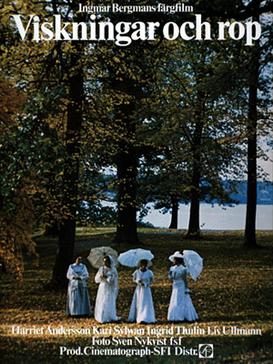




.jpeg)


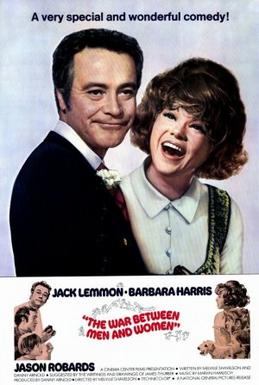



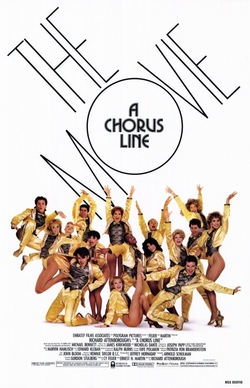




.JPG)




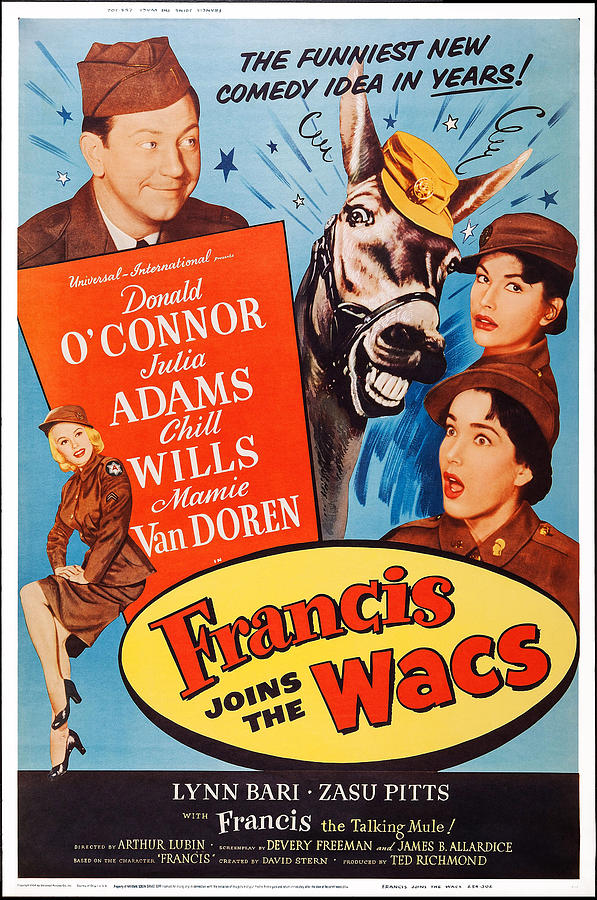
.JPG)




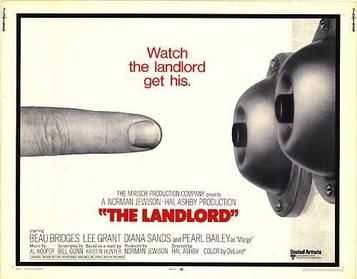
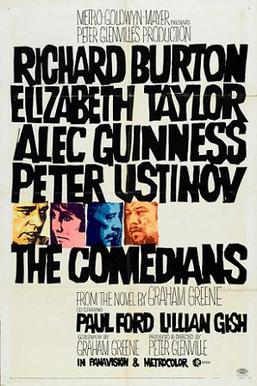

_film_poster.jpg)
.JPG)
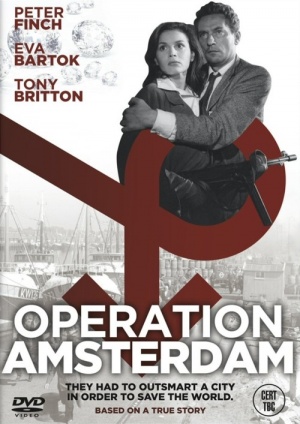

_Poster.jpg/220px-Neighbors_(2013)_Poster.jpg)
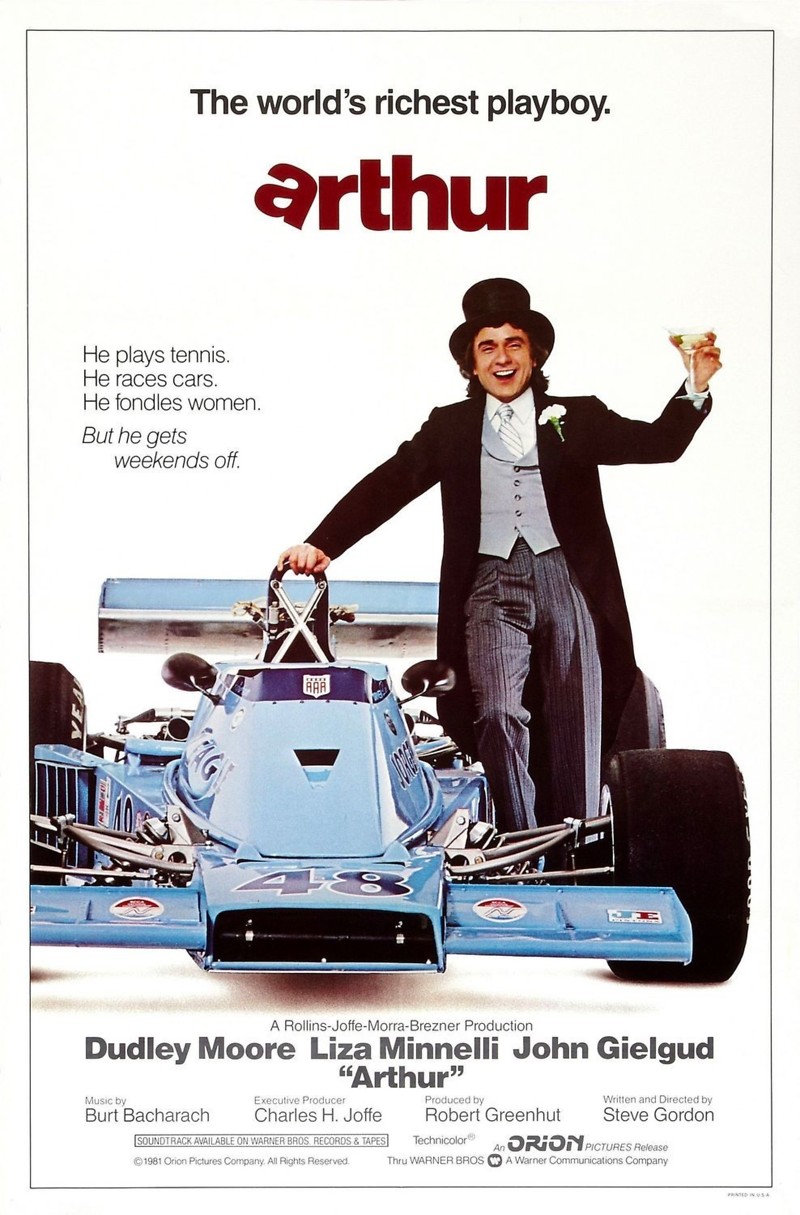
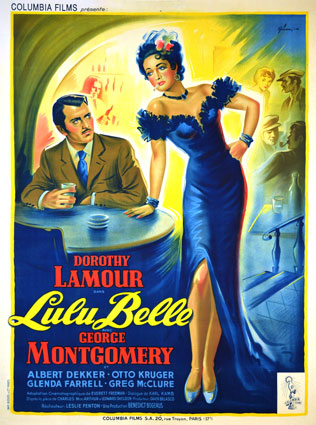
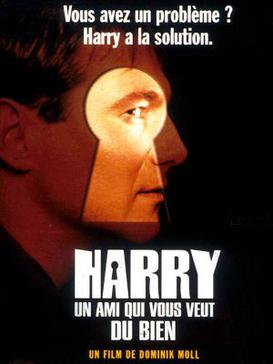
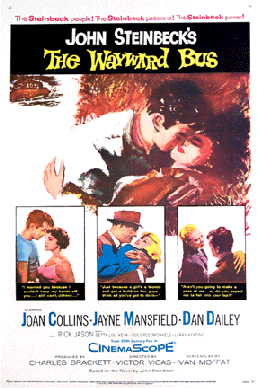






.JPG)
